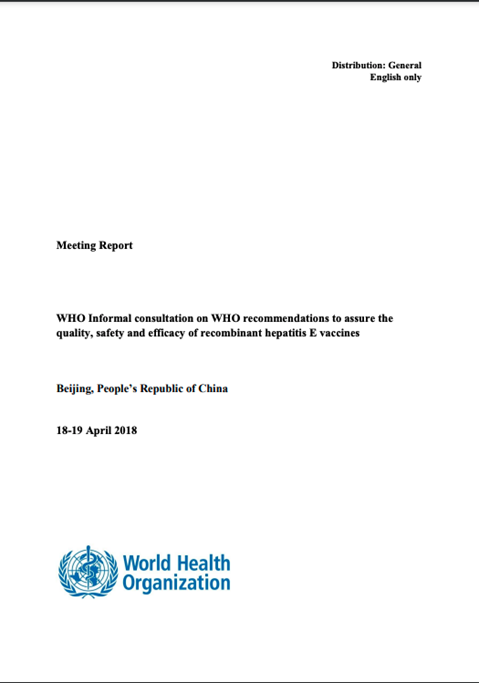WHO Informal consultation on WHO recommendations to assure the quality, safety and efficacy of recombinant Hepatitis E vaccines
Beijing, People’s Republic of China, 18-19 April 2018

Overview
Hepatitis E virus (HEV) is a major cause of sporadic and epidemic hepatitis that is found worldwide, the highest sero-prevalence rates being observed in regions with low standards of sanitation.
To mitigate and prevent the outbreak of hepatitis E, vaccines have been in development. In 2011, a hepatitis E vaccine based on a 239 amino acid recombinant HEV peptide, corresponding to fragment of open reading frame 2 (ORF2) which encodes the capsid protein of HEV was developed and licensed in China. Clinical trial studies demonstrated its efficacy and safety. In response to the request from stakeholders, WHO started the development of Recommendations to ensure the quality, safety and efficacy of hepatitis E vaccines. The first draft of the recommendations was prepared after a working group meeting and followed by a public consultation on the WHO website. An informal consultation was convened with participants of experts from around the world involved in the research, manufacture, regulatory assessment and approval, control-testing and release of hepatitis E vaccines. Participants were drawn from academia, national regulatory authorities (NRAs), national control laboratories (NCLs) and industry. In the meeting the comments and suggestions received were reviewed and discussed. Based on the current situation and experiences in development, manufacture and regulation the suggestions were incorporated into the text as appropriate. Consensuses were reached with the participants on each discussion point. It was agreed that the revised version of the Recommendations will be submitted to the Expert Committee on Biological Standardization (ECBS) for review and adoption in its meeting in October 2018.
